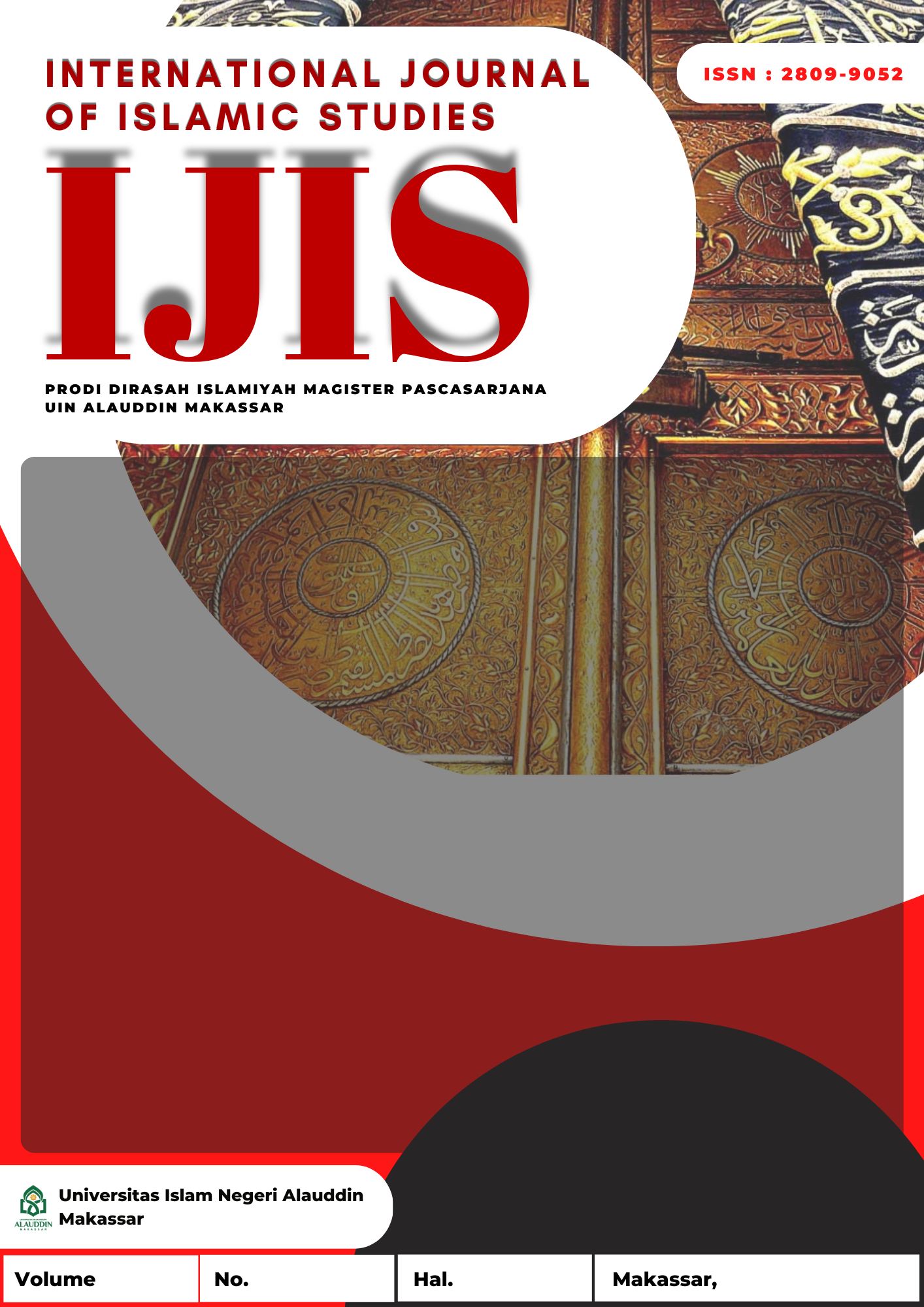CONTRIBUTION OF ISLAM IN THE WORLD (Case Study of Islamic Education Transmission)
Abstrak
Talking about the civilization of western, of course, it cannot be separated from the old history of Islam and the peak of its civilization. Before the power of science raised the spirits of western people who gave birth to the renaissance, Islam had experienced its golden age, while Europe was confined by the dark age. It reads a terrible condition, which Islam is busy with scientific studies so that it gives a civilization that has a very high value, unlike the western which closes rationality and relies on mystical. The spirit of moderation, liberation, and tolerance built by muslims, made westerners who chose to leave the old age free from pressure to make intellectual contact with muslim scholars. It is noted that they helped Islam a lot in translating Greek books into Arabic and translated by westerners into Latin. If you look closely, there is a common thread to connect these two different Qiblas. Muslims who reached the peak of glory in the Middle Ages, of course there was “interference” from other nations, such as the western. On the other hand, advanced western nations cannot be separated from the great contribution—consciously or unconsciously—by muslims in the past. Therefore, it is deemed necessary to recall Islam and its great contribution to the western world through Islamic education.Referensi
Al-Siba’i, Musthafa Husni. Khazanah Peradaban Islam. Cet. I; Bandung: Pustaka Setia, 2002.
Amstrong, K. Berperang Demi Tuhan: Fundamentalisme dalam Islam, Kristen, dan Yahudi. Cet. III; Jakarta: Penerbit Mizan, 2002.
Anwar, Chairil. “Kontribusi Islam terhadap Perkembangan IPTEK”. Jurnal UNISIA, no. 24 (1994), p. 33-40.
Arkoun, Mohammed. Rethinking Islam. Terj. Yudian W. Asmin dan Lathiful Khuluq. Rethinking Islam. Yogyakarta: Pustaka Pelajar, 1996.
Asmuni, Ahmad. “Kontribusi Islam terhadap Perkembangan Barat”. Jurnal Tamaddun, vol. 5, no. 1 (2017), p. 166-183.
Asy’ari, Hasyim. “Renaisans Eropa dan Transmisi Keilmuan Islam ke Eropa”. Jurnal Sejarah Peradaban Islam, vol. 2, no. 1 (2018), p. 1-14.
As-Syaikhu. “Intelektualitas Islam dan Kontribusinya atas Kemajuan Dunia Barat”. Jurnal Falasifa, vol. 10, no. 2 (2019), p. 91-101.
Dahlan, Muhammad. “Kontribusi Peradaban Islam terhadap Peradaban Barat; Suatu Tinjauan Historis”. Rihlah: Jurnal Sejarah dan Kebudayaan, vol. 6 no. 1 (2018), p. 1-12.
Hitti, Philip K. History of the Arabs: From the Earliest Times to the Present. Terj. R. Cecep Lukman Yasin dan Dedi Slamet Riyadi. The History of the Arabs. Cet. I; Jakarta: PT Serambi Ilmu Semesta, 2010.
Huzain, Muh. “Pengaruh Peradaban Islam terhadap Dunia Barat”. Tasamuh: Jurnal Studi Islam, vol. 10, no. 2 (2018), p. 355-377.
KBBI Edisi V Version 0.4.0 Beta (Online)
Kementerian Agama RI, Mushaf Wakaf: Al-Quran dan Terjemahnya (Cet. II; Jakarta: Forum Pelayanan Al-Quran, 2013), p. 133.
Muhsin, Mumuh. “Warisan Islam terhadap Perkembangan Islam: Mengapresiasi Pemikiran Nurcholish Madjid dan S. I. Poeradisastra”. Makalah yang disajikan pada Seminar Nasional di Universitas Padjajaran, Bandung, 10 Desember 2010.
Noor, Wahyuddin. “Menelisik Sumbangan Islam untuk Peradaban Modern”. Jurnal Dakwah dan Pengembangan Sosial Kemanusiaan, vol. 8, no. 1 (2017), p. 75-89.
Nursaman. Sejarah Pendidikan Islam Membangun Peradaban di Baghdad, Cordova, dan Indonesia [t. d.].
Obaid, H. Moh. Yahya. Kontribusi Islam terhadap Kebangkitan Barat. [t. d.].
Qomar, Mujamil. Merintis Kejayaan Islam Kedua: Merombak Pemikiran dan Mengembangkan Aksi. Cet. I; Penerbit Teras: Yoyakarta, 2011.
Sarton, G. A Guide to the History of Science. New York: The Ronald Press Company, 1952.
Wendi, Novrizal. “Pengaruh Peradaban Islam terhadap Dunia Barat”. Tasamuh: Jurnal Studi Islam, vol. 8, no. 1 (2016), p. 53-67.
Wahyudi, Dedi dan Rahayu Fitri AS. “Islam dan Dialog Antar Kebudayaan (Studi Dinamika Islam di Dunia Barat)”. Jurnal Fikri, vol. 1, no. 2 (2016), p. 267-290.
W. Montgemary. Islam dan Peradaban Dunia. Jakarta: PT. Gramedia Pustaka, 1997.
Yatim, Badri. Sejarah Peradaban Islam. Jakarta: PT Raja Grafindo Persada, 2003.
Authors who publish with this journal agree to the following terms:
1) Authors retain copyright and grant the journal right of first publication with the work simultaneously licensed under a Creative Commons Attribution License that allows others to share the work with an acknowledgement of the work's authorship and initial publication in this journal.
2) Authors are able to enter into separate, additional contractual arrangements for the non-exclusive distribution of the journal's published version of the work (e.g., post it to an institutional repository or publish it in a book), with an acknowledgement of its initial publication in this journal.
3)Authors are permitted and encouraged to post their work online (e.g., in institutional repositories or on their website) prior to and during the submission process, as it can lead to productive exchanges, as well as earlier and greater citation of published work (See The Effect of Open Access).







